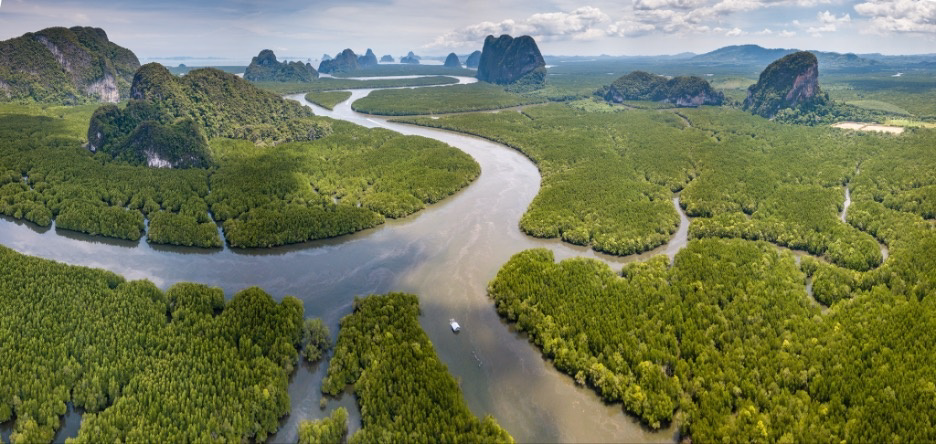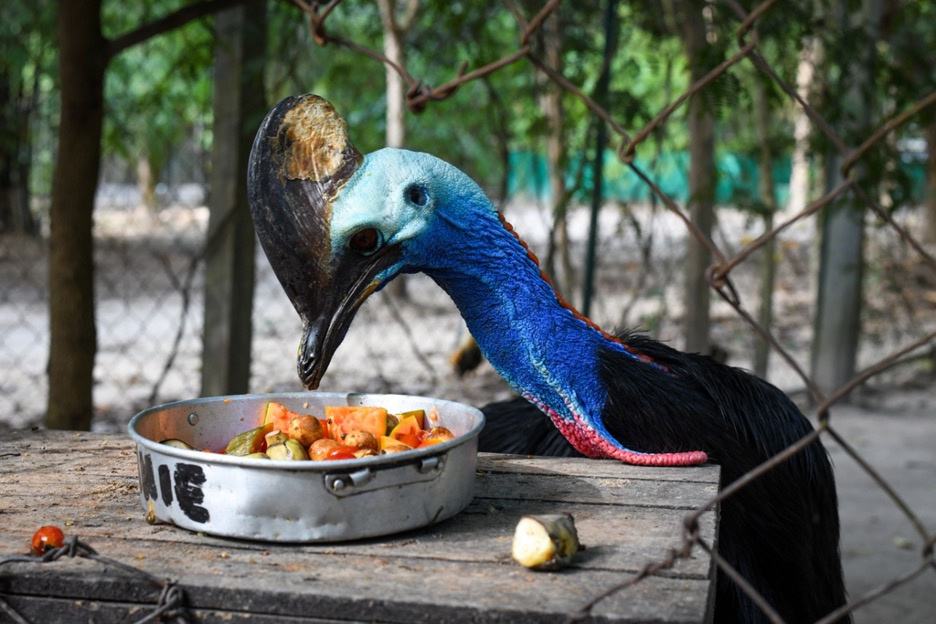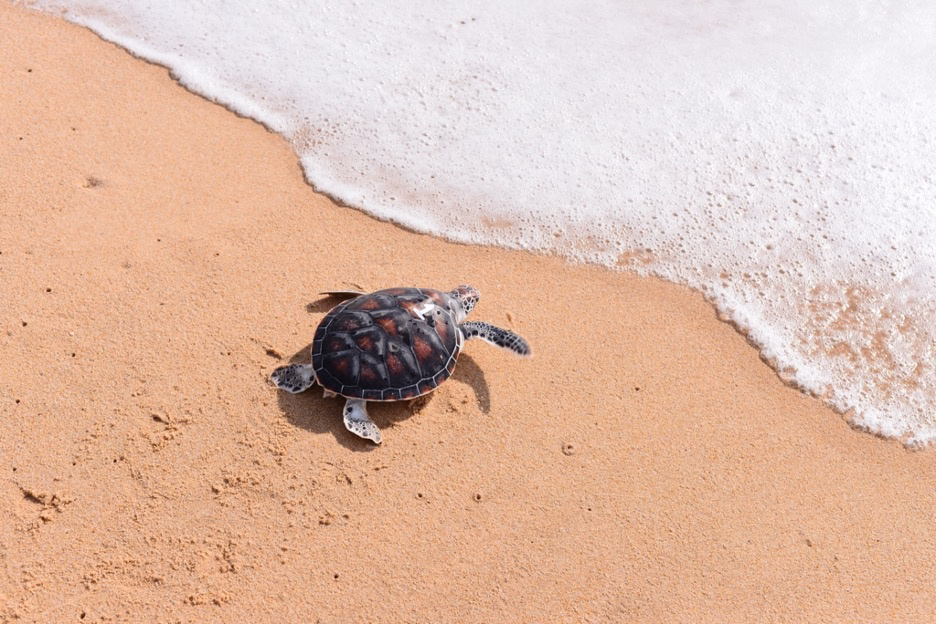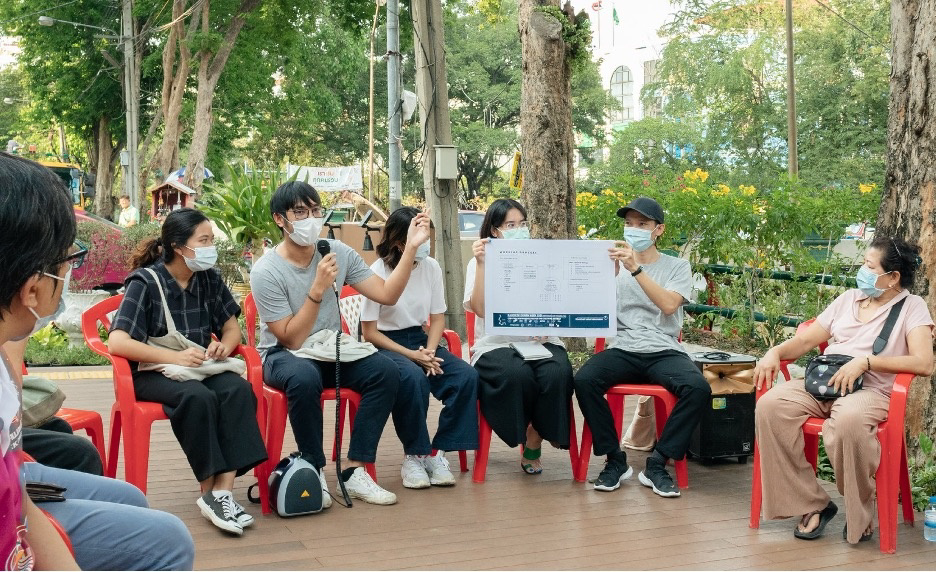Volunteering in Thailand to Restore Ecosystems
Volunteering in Thailand to Restore Ecosystems
วันที่นำเข้าข้อมูล 5 Jul 2021
วันที่ปรับปรุงข้อมูล 29 Nov 2022
Volunteering in Thailand to Restore Ecosystems
In line with this year’s theme for World Environment Day, here are volunteer programs you can join.
By: Nanticha "Lynn" Ocharoenchai
Since the Industrial Revolution, our natural habitats have degraded to the brink of collapse. This doesn’t just affect plants and animals, but also the wellbeing of us, humans. To ensure our survival, we need to restore the ecosystems which provide food, shelter, and air to all life on Earth.
In the last few years, there has been an influx of locals, expats, and travelers in Thailand taking a stand for nature. From picking up plastic trash on the beach and planting trees in degraded forests to protesting on the streets for climate justice and petitioning to tackle air pollution in cities, more and more are joining the conversation and movement for environmental justice and action.
In this article, you will gain insight into Thailand’s diverse geography, ecosystems, and wildlife and how you can help protect and restore natural habitats to their former glory through volunteer programs.
Eco-Volunteering with an Ecosystem Approach
- What is ecosystem restoration?
- What kinds of ecosystems exist in Thailand?
- Seeking the right volunteer program for you
- Programs for terrestrial ecosystems (land)
- Programs for marine ecosystems (water)
- Programs for climate (air)
- Finding other ways to help
What is ecosystem restoration?
Ecosystems are areas where plants, animals and microbes, as well as the weather, the landscape, and other components interact to form a network of life—in this community, all organisms depend on another for their survival.
Ecosystem restoration is defined as the reversing of nature degradation in mountains, lakes, coastal regions, rainforests, and other biomes to a point where wildlife can thrive and nature’s functions can recover. This is not only about tree planting or trash picking, but also about creating a dialogue to shift environmental policies and protect environmental activists.
Working to conserve these ecosystems can translate into fighting for the social justice of communities whose livelihoods depend on their natural resources. With the growing movement and need for a multidisciplinary range of environmentally conscious allies, you can now find a wide array of areas and capacities to contribute to ecosystem restoration based on your skillset.
What kinds of ecosystems exist in Thailand?
 Aerial view of a major natural mangrove forest dotted with towering limestone cliffs in Phang Nga, Thailand. Source: Richard Whitcombe / Shutterstock.com
Aerial view of a major natural mangrove forest dotted with towering limestone cliffs in Phang Nga, Thailand. Source: Richard Whitcombe / Shutterstock.com
Thailand’s varied range of geographical terrain has resulted in its rich biodiversity. Located in the middle of mainland Southeast Asia and along the equatorial belt, the majority of the country experiences high levels of precipitation and consistent temperatures throughout the year.
There are two main types of forests in Thailand, evergreen and deciduous, home to endangered animals like the Asian elephant and Indochinese tiger, as well as rare plants such as the giant Rafflesia flower and the Siamese rosewood tree. In its freshwater ecosystems, you can find exotic fish like the Mekong giant catfish. The country is also surrounded by the Andaman and South China Sea, which are home to magnificent marine creatures such as the whale shark, olive ridley sea turtle, and manta ray.
Unfortunately, many of the natural habitats that support these exotic species are now subject to deforestation, agricultural development, poaching, and habitat loss due to the ever-increasing pressures of human activity. With industrial development, more cities continue to expand without proper guardrails to ensure environmental and social responsibility.
Even leaving aside the onslaught of wildlife extinctions, unsustainable development also hurts us. The health of our ecosystems is extremely crucial to our wellbeing, as they provide ecosystem services that keep us alive. For example, birds and bees pollinate our crops, mangrove forests protect us from storm surges and coastal erosion, trees regulate our water cycle and store carbon emissions, and our coral reefs shelter many species of juvenile fish until they reach adulthood.
To protect our home, we can help nature and act through the right volunteer programs.
Seeking the right volunteer program for you
Thailand is one of the top destinations for volunteer programs where you can not only create a positive impact, but also discover Thai culture and philosophies rooted in environmentalism. Throughout these programs, you’ll have a chance to connect with nature, form meaningful relationships with locals, and learn different conservation methods.
When it comes to finding the perfect volunteer program, longevity is the key to ecosystem restoration, because nature takes time to heal. Therefore, you’d want to avoid parachuting and partaking in one-time activities, as some may simply be tourist attractions, unethical, or offer few long-term benefits on the ecosystem and local communities.
There are many volunteer abroad programs available, but to point you in the right direction, below are some reputable projects and groups. Some of these are for-profit organizations which come with fees, while others are non-profit volunteer communities you can join at no cost.
Programs for terrestrial ecosystems (land)

Land use is one of the largest issues revolving around climate change. Efforts to protect, restore, and promote the sustainable use of terrestrial ecosystems fall under Goal 15 of the 2030 Agenda for Sustainable Development set up by the United Nations in 2015, commonly referred to as the Sustainable Development Goals (SDGs).
The majority of the world's land is used for agricultural purposes, extraction of minerals, and urban development. This causes harmful chemicals and waste to enter into the soil, the foundations of life, and affect its fertility. These impacts, therefore, ripple far beyond all other ecosystems or their inhabitants.
- Uthai Forest is a family-run organization whose goal is to rejuvenate the natural environment by promoting sustainable food sources. Here, volunteers can learn more about self sufficiency and regenerative agriculture. If interested, you can also “adopt a plot,” giving 70% of it to build a forest while leaving the other 30% for your desired use.
- OurLand works to conserve and expand wildlife spaces by crowdfunding property purchases and creating private protected areas. The project is located south of the Western Forest Complex, one of the largest forests in all of Southeast Asia and home to some of the rarest species in the world. Volunteers can also help guide visitors through their ecotourism trails and work in the field to build more wildlife corridors.
- The Wildlife Friends Foundation works to rehabilitate and release animals back into the wild, as well as educate and inform about Thailand’s ecosystems. Protecting wildlife is key to protecting natural habitats—one is nothing without the other. The Foundation is also currently running a campaign against illegal wildlife trade and the use of animals for entertainment.
Programs for marine ecosystems (water)

The majority of volunteer programs to restore oceans require a scuba diving certification, but if you’re unable to acquire one or prefer to be out of the water, there are several viable alternatives to save our aquatic friends.
- New Heaven Dive School offers a program in marine conservation, as well as other ecosystem restoration projects on Koh Tao island. You would contribute to the research, restoration, and management of local coral reefs. Their two main objectives are to survey the reefs and implement local initiatives to protect the oceans and coastline. This program welcomes divers of all abilities and even offers courses to those eager to learn scuba diving.
- Trash Hero brings communities together to clean up trash in various locations in Thailand and even in neighboring countries. By collecting trash on land, you can prevent toxic waste from entering the oceans and, in turn, save marine life.
- GVI volunteers are dedicated to conserving the endangered green sea turtle. In collaboration with the Royal Thai Navy, they implement conservation methods for the turtles’ habitats. Volunteers assist by cleaning turtle tanks, treating turtle injuries, and gathering morphological data for conservation research. Once rehabilitated, turtles are released back into their natural habitat.
Programs for climate (air)
 We Park team collaborating with locals on the “Creating new possibilities for cultural district” project for Bangkok Design Week 2021. Source: We Park Facebook Page
We Park team collaborating with locals on the “Creating new possibilities for cultural district” project for Bangkok Design Week 2021. Source: We Park Facebook Page
Taking urgent action to combat climate change and its impacts falls under Goal 13 of the SDGs. Solving these issues can be quite tricky, since most of it requires collective action, and tangible results need time to materialize. However, there are various ways one can help advocate to reduce emissions and improve air quality, whether in cities or in nature.
- The Clean Air Network has been lobbying for clean air, working towards addressing the root causes of air pollution and attracting hundreds of volunteers every year to work academically and socially with the government and private sectors. You can help instantly by signing and sharing this petition to encourage more people to demand the right to clean air.
- Solar Fund started as a crowdfunding campaign to provide seven Thai hospitals with solar panels as a green energy solution. They are currently funding and implementing a Net Meter measure that will be installed at local residential rooftops, which allow residents to buy electricity produced there at fair rates. You can help fund their projects by donating.
- We Park works towards designing and building more inclusive green space in and around Bangkok, as well as creating awareness for the importance of urban pocket parks, green roofs, playgrounds, and more. From time to time, they host design competitions and crowdfunding campaigns for new parks, for which you can participate by contributing your ideas and expertise or donating.
Finding other ways to help
Ecosystem restoration is the theme of this year’s World Environment Day, and it involves repairing billions of hectares of land to protect people’s food, clean water, and livelihoods, while rescuing plants and animals from extinction. It can seem like a daunting challenge that’s larger than any one person.
It’s important to understand that the world's ecosystems are interconnected, so the programs you take in Thailand or any other corner of the globe will also affect the rest of the world's ecosystems. If you have a day to volunteer, some programs are easily accessible and don’t require any prior experience. If you’re unable to volunteer in person, you can also consider online volunteering or simply donating to a cause that’s important to you.
There are many opportunities to make a difference in Thailand, from ecosystem restoration on land to the sea to the air we breathe. There is always work to be done in improving the way we treat our planet, and with the environmental movement growing, there is hope.

About the Author: Nanticha "Lynn" Ocharoenchai
A writer, screenwriter, and environmental activist, Lynn works as a Communications Consultant for WWF. She is passionate about exploring how narratives and solutions-based communications can be used to educate mainstream audiences and inspire environmental action among diverse demographics.
Source: https://www.thailandnow.in.th/content/60d44cced364c300117d5fde
สถานเอกอัครราชทูต ณ กรุงดิลี